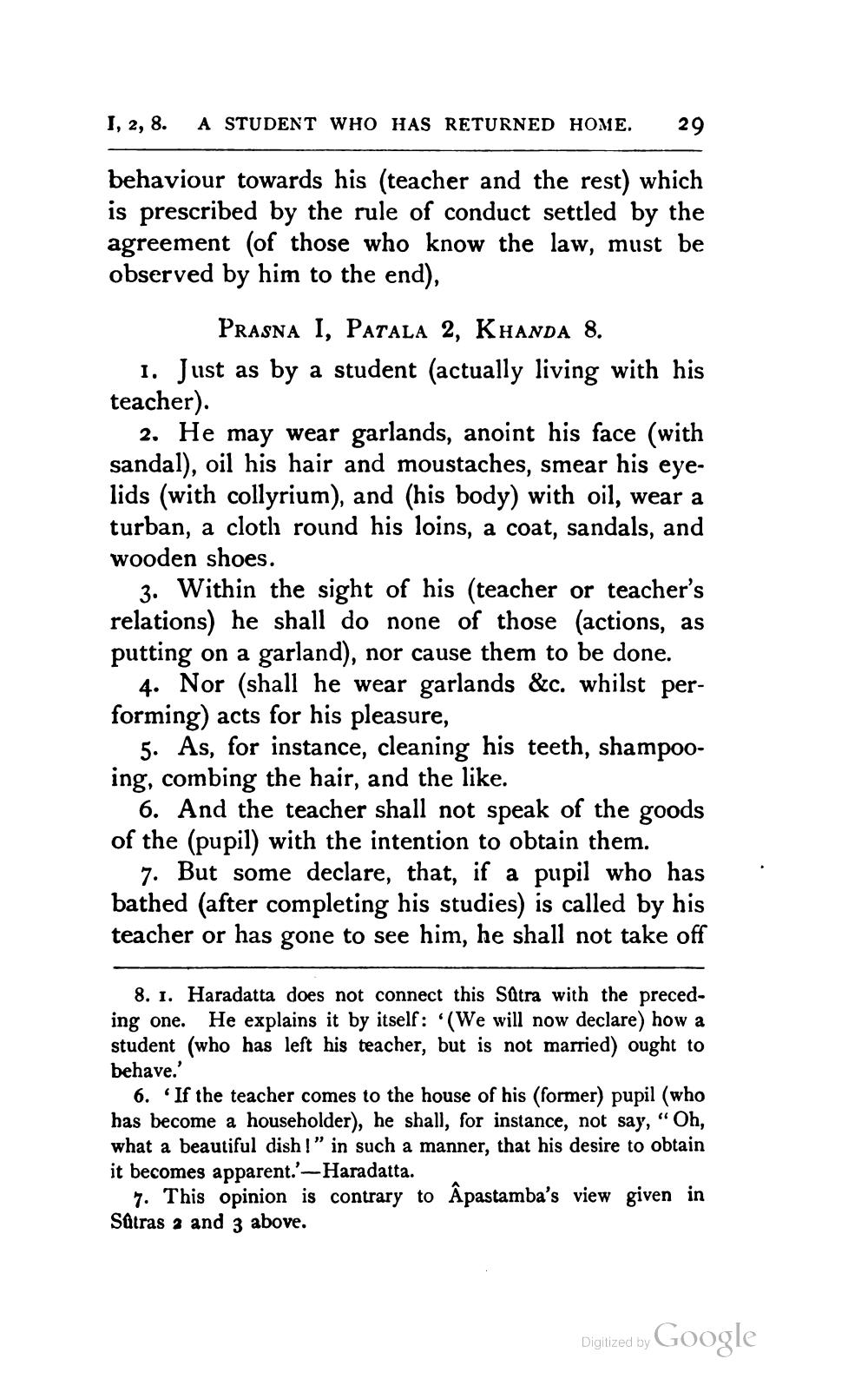________________
I, 2, 8.
A STUDENT WHO HAS RETURNED HOME.
29
behaviour towards his (teacher and the rest) which is prescribed by the rule of conduct settled by the agreement (of those who know the law, must be observed by him to the end),
PRASNA I, PATALA 2, KHANDA 8.
1. Just as by a student (actually living with his teacher).
2. He may wear garlands, anoint his face (with sandal), oil his hair and moustaches, smear his eyelids (with collyrium), and (his body) with oil, wear a turban, a cloth round his loins, a coat, sandals, and wooden shoes.
3. Within the sight of his (teacher or teacher's relations) he shall do none of those (actions, as putting on a garland), nor cause them to be done.
4. Nor (shall he wear garlands &c. whilst performing) acts for his pleasure,
5. As, for instance, cleaning his teeth, shampooing, combing the hair, and the like.
6. And the teacher shall not speak of the goods of the (pupil) with the intention to obtain them.
7. But some declare, that, if a pupil who has bathed (after completing his studies) is called by his teacher or has gone to see him, he shall not take off
8. 1. Haradatta does not connect this Sûtra with the preceding one. He explains it by itself: (We will now declare) how a student (who has left his teacher, but is not married) ought to behave.'
6. If the teacher comes to the house of his (former) pupil (who has become a householder), he shall, for instance, not say, "Oh, what a beautiful dish!" in such a manner, that his desire to obtain it becomes apparent.'-Haradatta.
7. This opinion is contrary to Âpastamba's view given in Sutras 2 and 3 above.
Digitized by
Google




